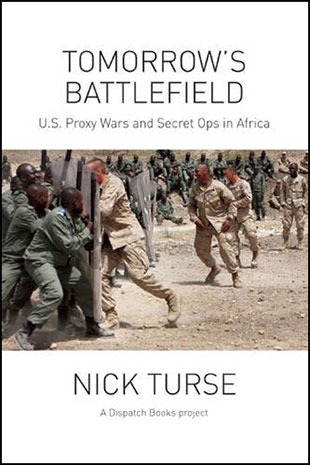Nick Turse is an award-winning journalist and historian who is the managing editor of TomDispatch and a fellow at the Nation Institute. After covering American military actions in Vietnam, Iraq, and Afghanistan, he began reporting in 2012 about the ways in which AFRICOM (United States Africa Command) is carrying out its mission "to provide regional security, stability, and prosperity."
According to Terse, US Special Operations in Africa have turned this continent from a region regarded as of little military importance to a major war zone. As Major General James Linder has put it: "Africa is the battlefield of tomorrow, today." Although most operations are hush-hush, Terse reports that there are 5,000 US defense personnel on the continent with 546 "activities" undertaken there in 2013, and $836 million spent on AFRICOM missions between 2010 and 2012.
What is being done for all this money? New bases are being constructed, training exercises are being provided to indigenous troops fighting terrorists, special operations missions are growing, and drone bases are expanding. According to TomDispatch's analysis, the US military is involved in more than 90 percent of Africa's 54 nations. Those statistics are hardly in line with AFRICOM's commander David Rodriquez statement that America only has a "small footprint" on the continent.
Many individual Americans, religious groups, and humanitarian organizations have responded generously to the plight of Africans in the AIDS crisis, the droughts, and the widespread hunger crises. But underneath this good will is the subtext that everyone knows about: Africa has a number of oil producing nations and within this continent are 80% of the world’s strategic minerals, which the developed world needs to maintain our economies and lifestyles. That is why Africa will continue to be the main battleground in a war that has no foreseeable end. And that is why Trask's book is so important in understanding what is happening there in the shadows.
